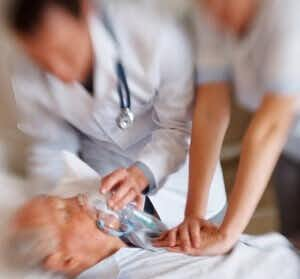
No one wants to die of a heart attack, but too many Americans still do. Nearly 1,000 people suffer sudden cardiac arrest each day in the United States. That totals more than 350,000 a year. When the heart stops beating, death is imminent.
What Are the Odds of Surviving?
Sadly, most people die of a heart attack even before they get to the hospital. Then, at least half those hospitalized die before discharge. If, however, they can survive and be discharged, their chance of doing well long term is pretty good. A comprehensive systematic review published in JAMA Cardiology (May 4, 2022) shows that about almost two thirds who survive their initial hospital stay are alive ten years later.
CPR can make a difference. That is why automated external defibrillators should be widely available in public spaces and ordinary people should be well trained in how to use them. You don’t have to be a doctor or an EMT to save a life.
Warning Signs You Might Die of a Heart Attack:
It may seem that people who have heart attacks or strokes are struck down out of the blue. A new study suggests that, instead, nearly everyone who experiences such a cardiovascular event had at least one suboptimal risk factor apparent beforehand (JACC, Oct. 2025).
The research included more than 9 million adults in Korea. A routine screening in 2009 recorded blood pressure, cholesterol, blood glucose and smoking history. The scientists also checked prescription records for medicines that are used to treat these problems. When researchers checked participants’ health records after 13 years, they were able to see who had developed cardiovascular complications and who had not.
They also studied nearly 7,000 American adults participating in the Multi-Ethnic Study of Atherosclerosis (MESA). These middle-aged to older individuals did not have heart disease when the study began. They too had their blood sugar, blood pressure and cholesterol measured and reported if they were smokers. Nearly 18 years later, the investigators determined who suffered heart attacks, strokes, heart failure or cardiovascular death.
In both Korea and America, 96% of those who experienced complications had blood pressure above 120 in the initial screening. Even though this wasn’t technically hypertension, it was considered nonoptimal. High cholesterol and high blood sugar were also common, even if they did not reach the point at which medication was clearly needed. Most people had multiple risk factors. Consequently, if you don’t want to die of a heart attack or stroke, pay attention to these ordinary risk factors and do what you can to get them under control.
A Lethal Heart Attack Despite Low Cholesterol:
Many people probably don’t even imagine that such a fate could overtake them. When it happens to a family member, though, people pay attention. This reader got just such a wake-up call.
Q. My father recently died unexpectedly from a heart attack. He had seen his doctor shortly before this event and had been given a clean bill of health. His cholesterol levels were naturally low–under 170 and his doctor said there were no signs of heart disease.
I do not understand how my father could have died with no advance warning. I don’t want to die of a heart attack like he did. What should I do? Do you have a booklet that talks about diet and other strategies to avoid heart disease?
Cholesterol Levels Are Imperfect Predictors:
A. It has been estimated that roughly half of the people who suffer heart attacks have normal LDL cholesterol levels (American Heart Journal, Jan. 2009). That helps explain why the American Heart Association has abandoned specific target goals for LDL cholesterol and instead has gone to a risk calculator that considers other factors as well. You may want to enter your own data and calculate your ten-year risk of a heart attack.
How to Keep Your Heart Healthy:
We have written about lipid levels and an additional risk factor, Lp(a), in our eGuide to Cholesterol Control and Heart Health. In it, we also make recommendations on anti-inflammatory foods and other strategies to lower your likelihood of heart disease. Exercise is key, of course. Finding ways to relieve stress is also essential, whether you practice deep breathing, meditation or long walks.
Psyllium, niacin and magnesium are supplements that may be helpful. Ask your doctor whether aspirin is appropriate, given your family history. The most important thing is to figure out which risk factors are relevant for you and work to mitigate them. You’ll want to work with your doctor or health care provider on this so that you don’t have to die of a heart attack.
Citations
- Amacher SA et al, "Long-term survival after out-of-hospital cardiac arrest: A systematic review and meta-analysis." JAMA Cardiology, May 4, 2022. DOI: 10.1001/jamacardio.2022.0795
- Lee H et al, "Very high prevalence of nonoptimally controlled traditional risk factors at the onset of cardiovascular disease." JACC, Oct. 2025.
- Sachdeva A et al, "Lipid levels in patients hospitalized with coronary artery disease: an analysis of 136,905 hospitalizations in Get With The Guidelines." American Heart Journal, Jan. 2009. DOI: 10.1016/j.ahj.2008.08.010

